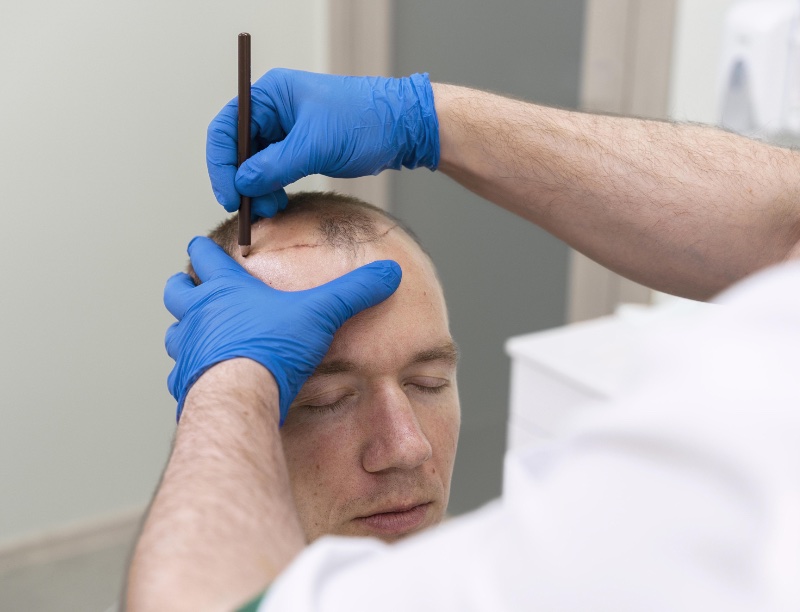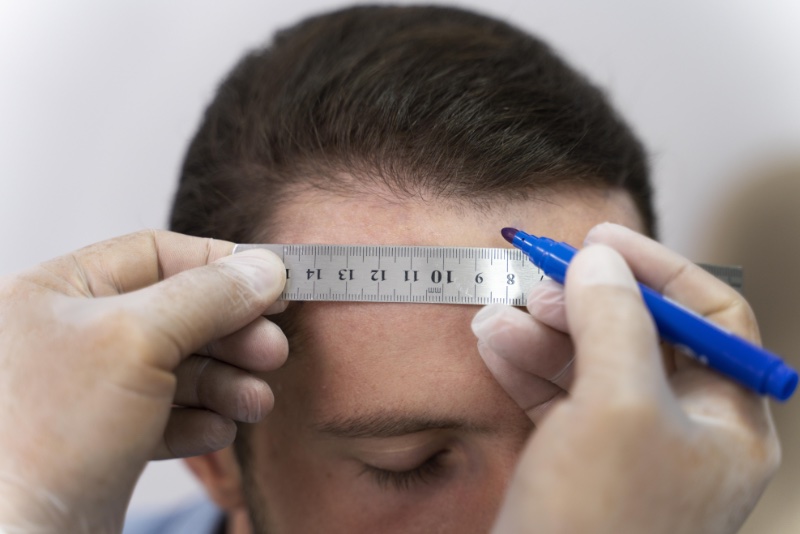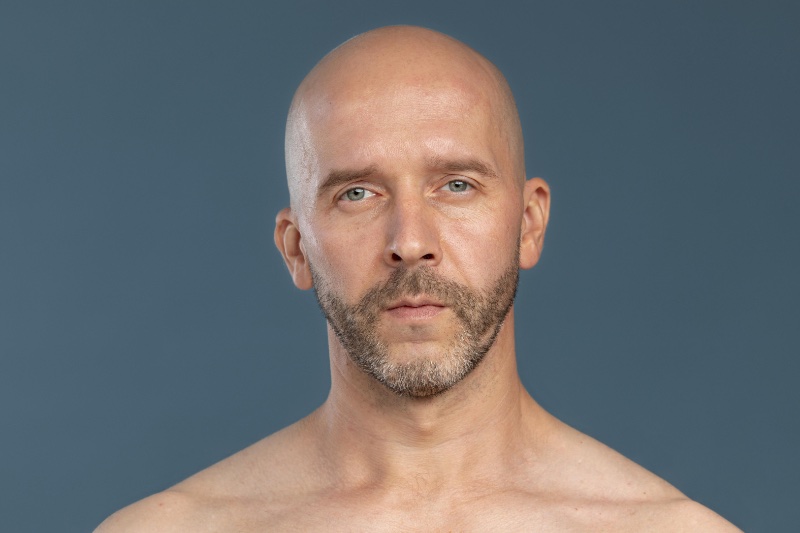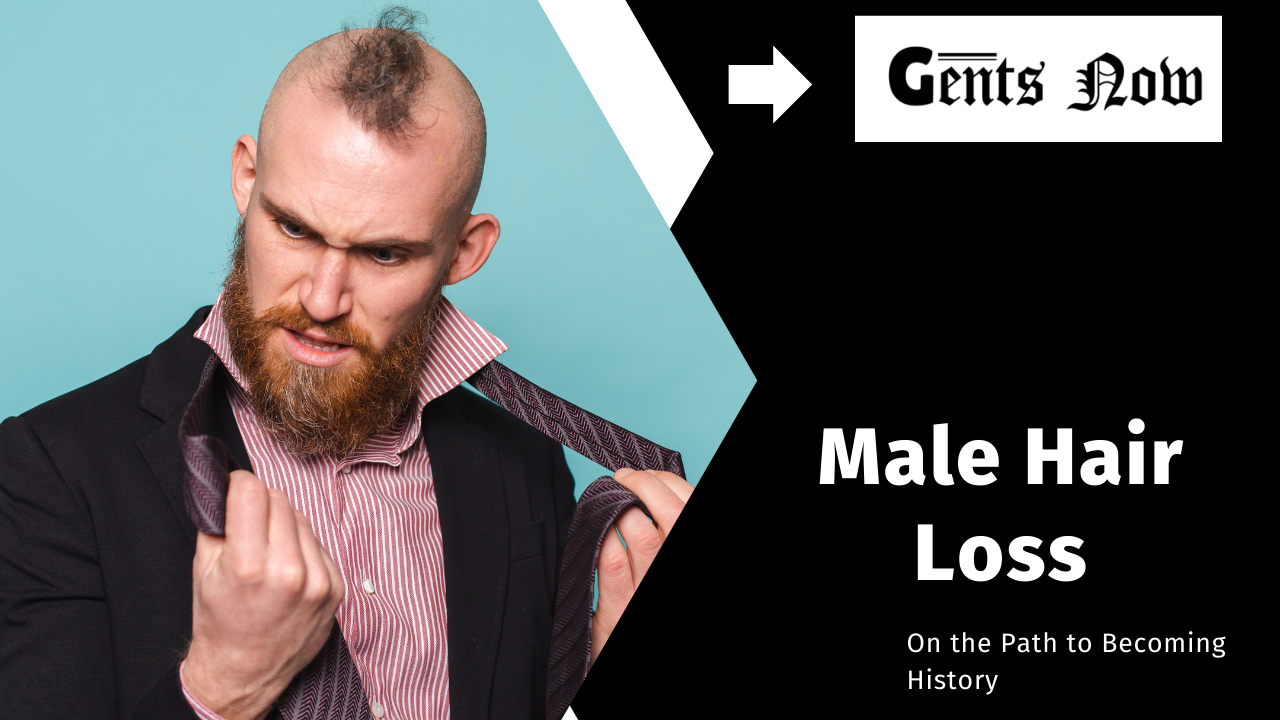Every so often, a news story suggests that male pattern baldness might become a thing of the past. And every time, there’s a disappointment. As one scientist quipped, it seems easier to cure aging than baldness.
In the 2020s, we have collectively reached a level of scientific mastery that suggests we are on the brink of a breakthrough. While we might not discover a miracle treatment overnight, it seems possible.
Contents
Advancements in Hair Restoration Science
For instance, researchers at Japan’s Yokohama National University recently made significant strides in addressing baldness. They used embryonic skin cell tissue in the murine model to stimulate what is widely viewed as an essential step toward hair growth. The idea is to modify the control mechanisms that dictate how hair cells grow to restore hair lost due to male pattern baldness.
Only certain follicles are susceptible to the traditional male balding pattern, not all. And that’s got researchers interested in why some lose their ability to grow while others continue pum g out hair for a lifetime.
Emerging Solutions & Their Impact

The Japanese team believes it will soon be possible to engineer these balding-resistant follicles and insert or “graft” them onto a person’s head. The result will be lost hair that starts regrowing, reducing male pattern baldness and hel g people living with alopecia. Population studies estimate that 95 percent of men will experience some form of balding during their lives, and around 25 percent of women.
Two-thirds of men complain about losing hair after age 35, proving that it isn’t just something that affects older people. Researchers hope the new study will make it easier for people to regain their full head’s hair, improving confidence, mental health, and self-perception. Of course, the research from Japan isn’t the only breakthrough to have occurred in this space. Many other teams are searching for the holy grail of reducing or eliminating hair loss in most men.
More recently, researchers at Northwestern University reported that they’ve made a breakthrough that could find a treatment to rejuvenate follicles that no longer want to produce hair. The idea is based on the idea that hair follicles stiffen over time. The team believes that softening them will bring them back to a youthful state, enabling them to produce hair for longer.
The breakthrough hinges on discovering a tiny RNA particle in the cells called miR-205. The team believes this packet of information is essential for stimulating stem cells which, in turn, will relax follicles and make them less stiff over time. Mice, the team says, began showing signs of hair growth within ten days of being manipulated to produce the fragment. The story could be similar in humans, the researchers say.
Existing Treatments & Their Effectiveness

With that said, existing treatments for male pattern baldness are already excellent. Men with sufficient budgets and motivation can get multiple procedures to enhance their hair and confidence. Scalp Nation, a UK-based clinic specializing in scalp micropigmentation, says multiple clients come for support after significant balding. It says that new methods are making it possible for men to give the appearance of having a full head of hair, even if they lost it many years ago.
They say the idea is to replace lost hairs with a pigmentation-like tattoo essentially. Giving someone the equivalent of a five o’clock shadow across their head can result in a tremendous confidence boost and make it appear as if the hair has been freshly shaved. However, Scalp Nation says scalp micro pigmentation doesn’t hurt, unlike a regular tattoo. “Most say 3/10 in comparison to a traditional tattoo, but everybody’s pain threshold is different.”
The technique lasts around 3 to 5 years before requiring renewal, but it is relatively cost-effective. Moreover, future touch-ups tend to be quicker procedures than the initial treatment. Of course, scalp pigmentation isn’t the only restorative technique available on the market, but it tends to be more flexible than other approaches. Virtually anyone is a candidate, whereas people undergoing hair transplants need to fulfill more criteria.

For instance, follicular unit extraction (FUE) requires patients to have sufficient donor hairs. Surgeons typically remove these from a preferred patch on the back of the head, well above the neck. However, this region can sometimes deplete follicles for extraction, forcing transplantation from other areas. If insufficient hair is available, surgeons may recommend against undergoing an operation at all.
Follicular unit transplant (FUT) is another popular technique. However, it requires surgically removing a strip of scalp and implanting it at the donor site. This technique is highly effective at restoring hair growth but significantly increases scarring risk. These surgical methods and the emerging science of hair restoration differ in their level of invasiveness.
Modern breakthroughs aim to address the root cause of hair loss rather than merely managing the symptoms. The goal is to prevent hair loss or coax dormant follicles into producing hair once more, circumventing natural alopecia.
Baldness: Evolution or Gene Selection?

One prevailing theory suggests that widespread hair loss in men evolved as a genetic adaptation, signaling wisdom and maturity. The idea is that younger people might have respected men with less hair more, thinking they were wiser, which could have helped them survive.
However, this theory has its peculiarities. Evolution cannot specifically favor male pattern baldness that occurs post-reproductive age. Thus, it seems more plausible that hair loss results from inadvertent gene selection. Many men, especially in Asia and Africa, retain a full head of hair well into their advanced years.
Undoubtedly, a definitive solution to male pattern baldness would revolutionize countless lives. A significant number of men report experiencing depression linked to hair loss. Despite its prevalence, hair loss significantly affects self-esteem and overall life satisfaction.
The Way Forward in Hair Restoration

Choosing treatment is seldom regretted and is often successful. As the industry continues to thrive, it is increasingly likely that someone you know will soon be undergoing some form of hair restoration treatment. As we progress further into this decade, we anticipate more significant breakthroughs in hair restoration. These advances could redefine the landscape of self-confidence for men and women alike, fundamentally changing how society perceives aging and beauty.
With hair restoration methods becoming more accessible and less invasive, we’re already witnessing a shift in attitudes. People are beginning to embrace these treatments, not out of vanity, but for their potential to enhance their quality of life. The future holds immense promise; from treatments harnessing our body’s natural healing potential to innovative technology applications, pursuing a cure for baldness is becoming more ambitious and promising.
As the understanding of hair loss deepens, society grows ever closer to a future where baldness may be a choice rather than a fate. For many, this future cannot come soon enough. As science continues to chip away at this challenge, each breakthrough and each successful treatment brings hope. The journey may be long, and the path may be winding, but the destination—a world where baldness is a choice, not an inevitability—is within reach. It’s not just about the quest to restore hair; it’s about restoring hope, confidence, and a sense of self.



